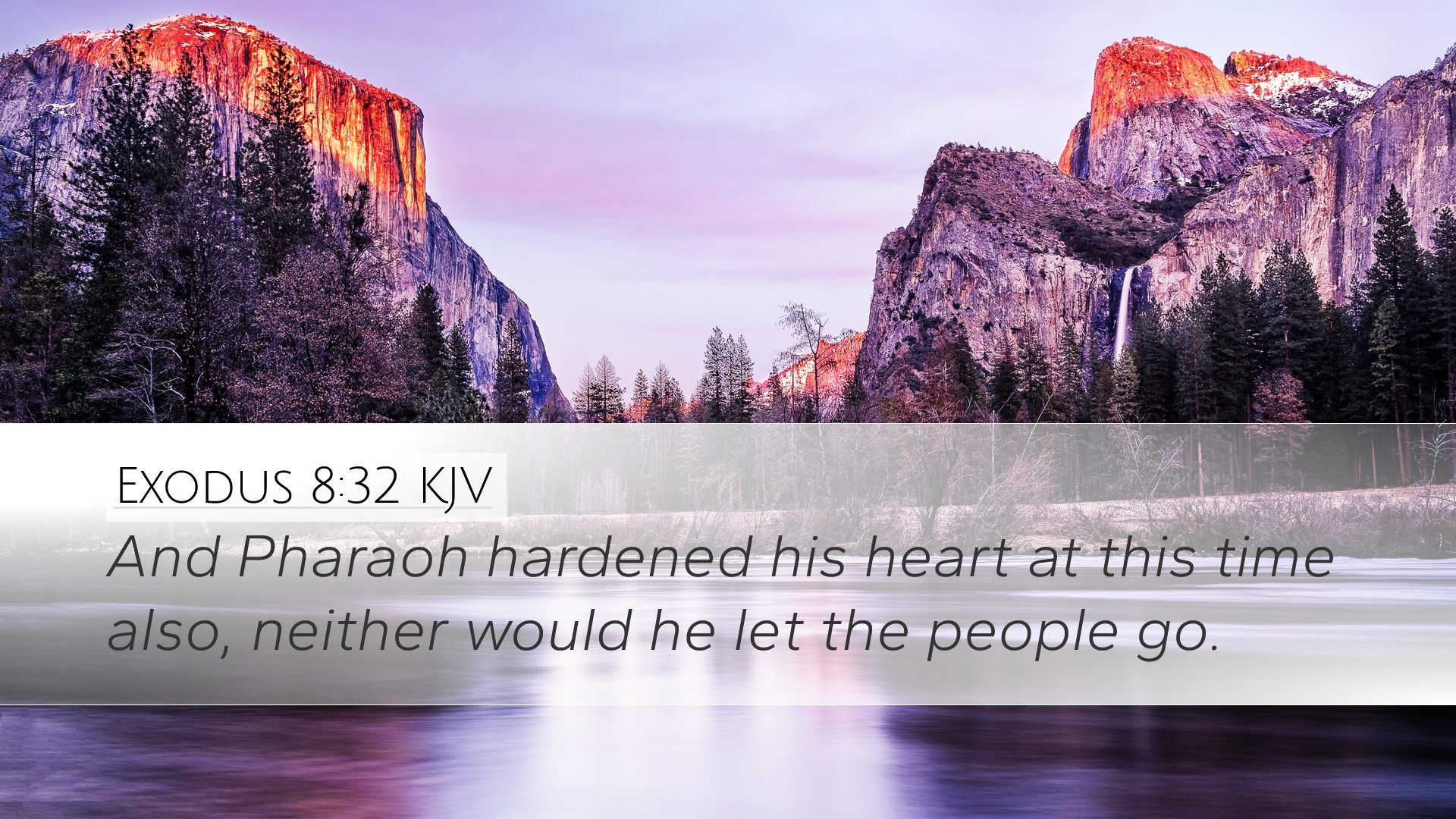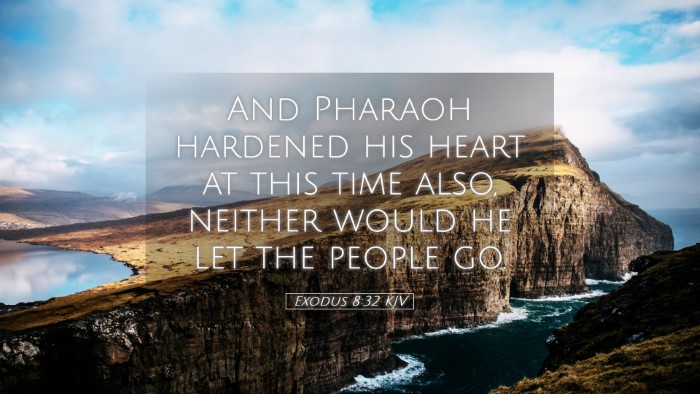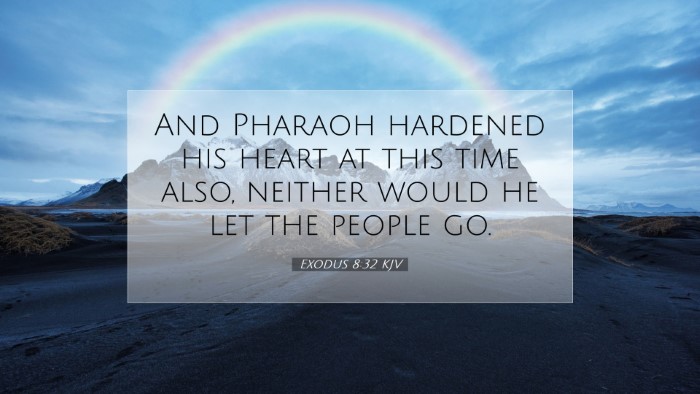Exodus 8:32 Commentary
Verse: "But Pharaoh hardened his heart this time also, and did not let the people go." - Exodus 8:32
Introduction
The account of Exodus is a pivotal narrative in the Bible, detailing the struggle between Moses and Pharaoh over the release of the Israelites from Egyptian bondage. Exodus 8:32 marks a significant moment within this narrative, where Pharaoh's obstinacy in the face of plagues demonstrates themes of hardheartedness, divine sovereignty, and human rebellion. This commentary synthesizes insights from renowned public domain scholars such as Matthew Henry, Albert Barnes, and Adam Clarke.
The Hardening of Pharaoh's Heart
Exodus 8:32 illustrates Pharaoh's continued refusal to release the Israelites. Notably, this passage emphasizes the phrase "hardened his heart," which recurs throughout the narrative. Theologically, the hardening of Pharaoh's heart can be viewed in multiple dimensions:
- Divine Sovereignty: God allows Pharaoh's heart to harden as part of His divine plan, demonstrating power over human will (see Romans 9:17-18).
- Human Responsibility: While God’s sovereignty is evident, Pharaoh's choices reflect his own willful rebellion against God’s command.
- Illustration of Judgment: Pharaoh’s persistent hardening serves as a warning against resistance to divine authority, illustrating how continued disobedience can result in severe consequences.
Matthew Henry remarks that Pharaoh's defiance was not simply a momentary lapse but a sustained posture of resistance. His heart was hardened through repeated exposure to God’s miracles, suggesting that knowledge of the truth does not guarantee obedience.
Context of the Plagues
In the immediate context, Exodus 8 follows a series of plagues initiated by God to compel Pharaoh to relent. Each plague serves as an assault on the Egyptian deities and demonstrates God's superiority. The struggle reflects a cosmic battle, where Pharaoh, as a divine figure in his own right, confronts the God of Israel.
Albert Barnes highlights the irony in Pharaoh’s hardness. Despite experiencing the calamities inflicted upon Egypt by the hand of God, Pharaoh remains stubborn, revealing the acute spiritual blindness that often accompanies pride and power.
Theological Implications
The hardening of Pharaoh's heart in Exodus 8:32 opens discourse on the nature of free will in relation to God’s omnipotence. Adam Clarke suggests that God's hardening of Pharaoh's heart might have served a larger purpose within human history, where Pharaoh was used as an instrument for God's glory through the display of divine power. This revelation about Pharaoh’s heart brings into focus the tension between divine intervention and human choice.
- Preservation of Chosen People: God's intention was to protect and deliver His chosen people, using Pharaoh’s obstinacy to demonstrate His might.
- Call to Repentance: Each plague presented an opportunity for repentance. However, Pharaoh's rejection of these opportunities illustrates a hardened disposition.
- Contrast with Israel: The Israelites were called to faith and obedience, providing a juxtaposition to Pharaoh's obstinacy.
Lessons for Today
Exodus 8:32 carries lessons pertinent to contemporary readers, particularly for pastors, students, and theologians:
- Obedience to God's Call: Just as Pharaoh resisted God’s commands, believers must remain vigilant to obey and discern God’s direction in their lives.
- Understanding Hardness of Heart: Hardness of heart can manifest in various ways, challenging individuals to examine their own responses to divine instruction.
- The Cost of Rebellion: Pharaoh's eventual demise serves as a solemn reminder of the consequences of rebellion against God's will.
Henry advises that understanding these dynamics of hardheartedness encourages self-examination within the church, prompting leaders to foster an environment of submission to God’s authority.
Conclusion
Exodus 8:32 serves not only as a historical marker in the narrative of Israel's liberation but also as a theological examination of the consequences of a hardened heart. The insights gleaned from Matthew Henry, Albert Barnes, and Adam Clarke illuminate the complexities of Pharaoh's character and the broader implications for believers today. The steadfastness of God's will juxtaposed against human resistance underscores the urgency for obedience and the divine call to transformation.


